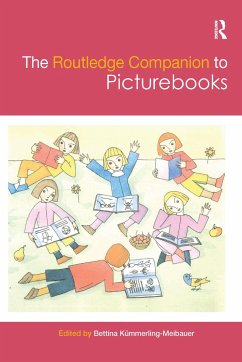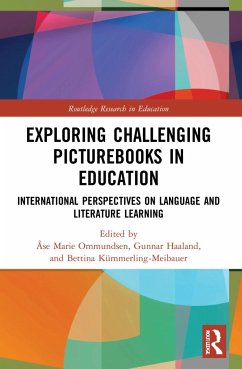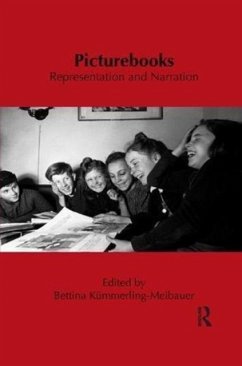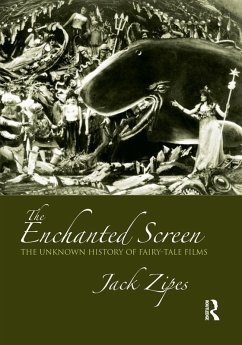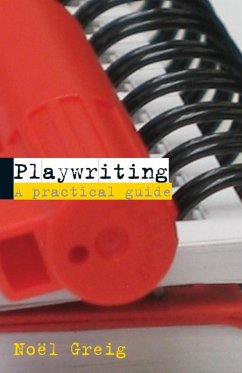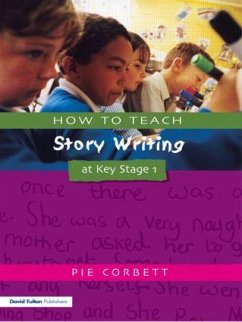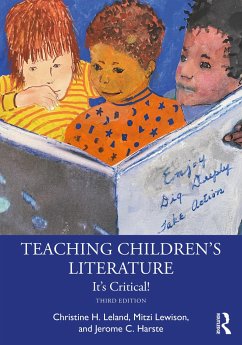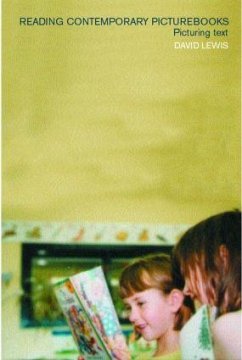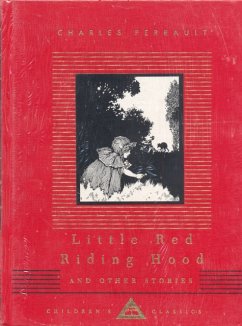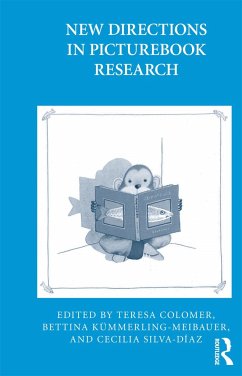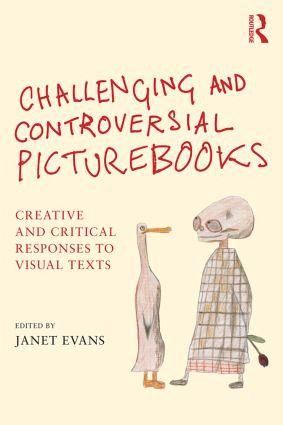
Challenging and Controversial Picturebooks
Creative and critical responses to visual texts
Herausgegeben: Evans, Janet

PAYBACK Punkte
23 °P sammeln!
It is often assumed that picturebooks are for very young readers because of their emphasis on the illustrations and their scarcity of text; however, there are increasing numbers of picturebooks where the age of the implied reader is questionable. These are picturebooks whose controversial subject matter and unconventional, often unsettling style of illustration challenge the reader, pushing them to question and probe deeper to understand what the book is about. In addition to the book challenging the reader, the reader often challenges the book in an attempt to understand what is being said.Th...
It is often assumed that picturebooks are for very young readers because of their emphasis on the illustrations and their scarcity of text; however, there are increasing numbers of picturebooks where the age of the implied reader is questionable. These are picturebooks whose controversial subject matter and unconventional, often unsettling style of illustration challenge the reader, pushing them to question and probe deeper to understand what the book is about. In addition to the book challenging the reader, the reader often challenges the book in an attempt to understand what is being said.
These increasingly popular picturebooks work on many different levels; they are truly polysemic and worthy of in-depth analysis. They push the reader to ask questions and in many instances are intrinsically philosophical, often dealing with fundamental life issues.
Challenging and Controversial Picturebooks examines these unconventional, non-conformist picturebooks, considering what they are, their audience and their purpose. It also considers:
Children's and adults' thoughts on these kinds of picturebooks.
How challenging and unsettling wordless picturebooks can play with the mind and promote philosophical thought.
What creates non-conformity and strangeness ... is it the illustrations and their style, the subject matter or a combination of both?
Why certain countries create, promote and accept these picturebooks more than others.
Why certain picturebooks are censored and what factors are in play when these decisions are made.
The role of publishers in translating and publishing these picturebooks.
Children's creative and critical responses to strange, unsettling and often disturbing visual texts.
This inspiring and thought-provoking volume explores the work of a number of highly respected, international picturebook experts and includes an exclusive interview with the legendary Klaus Flugge, Managing Director of Andersen Press, one of the few remaining independent children's book publishers in England.
It is an indispensable reference for all interested in or working with picturebooks, including researchers, students in higher and teacher education, English advisors/inspectors, literacy consultants and classroom teachers.
These increasingly popular picturebooks work on many different levels; they are truly polysemic and worthy of in-depth analysis. They push the reader to ask questions and in many instances are intrinsically philosophical, often dealing with fundamental life issues.
Challenging and Controversial Picturebooks examines these unconventional, non-conformist picturebooks, considering what they are, their audience and their purpose. It also considers:
Children's and adults' thoughts on these kinds of picturebooks.
How challenging and unsettling wordless picturebooks can play with the mind and promote philosophical thought.
What creates non-conformity and strangeness ... is it the illustrations and their style, the subject matter or a combination of both?
Why certain countries create, promote and accept these picturebooks more than others.
Why certain picturebooks are censored and what factors are in play when these decisions are made.
The role of publishers in translating and publishing these picturebooks.
Children's creative and critical responses to strange, unsettling and often disturbing visual texts.
This inspiring and thought-provoking volume explores the work of a number of highly respected, international picturebook experts and includes an exclusive interview with the legendary Klaus Flugge, Managing Director of Andersen Press, one of the few remaining independent children's book publishers in England.
It is an indispensable reference for all interested in or working with picturebooks, including researchers, students in higher and teacher education, English advisors/inspectors, literacy consultants and classroom teachers.




